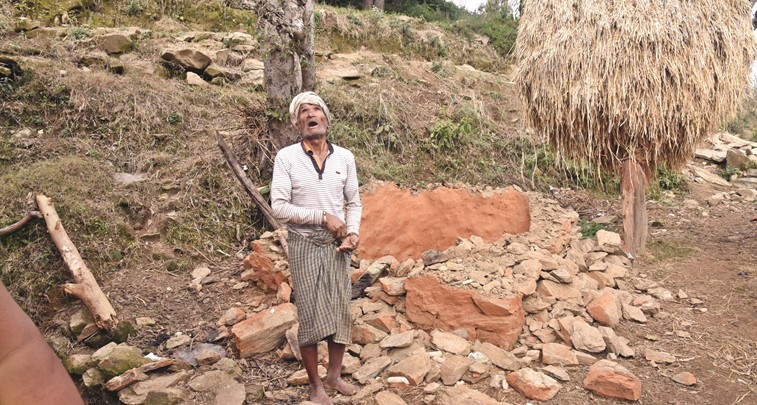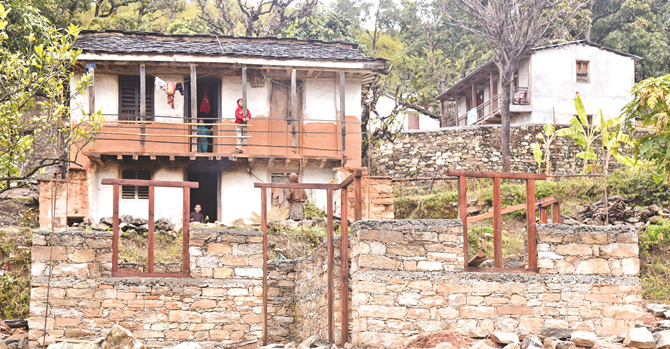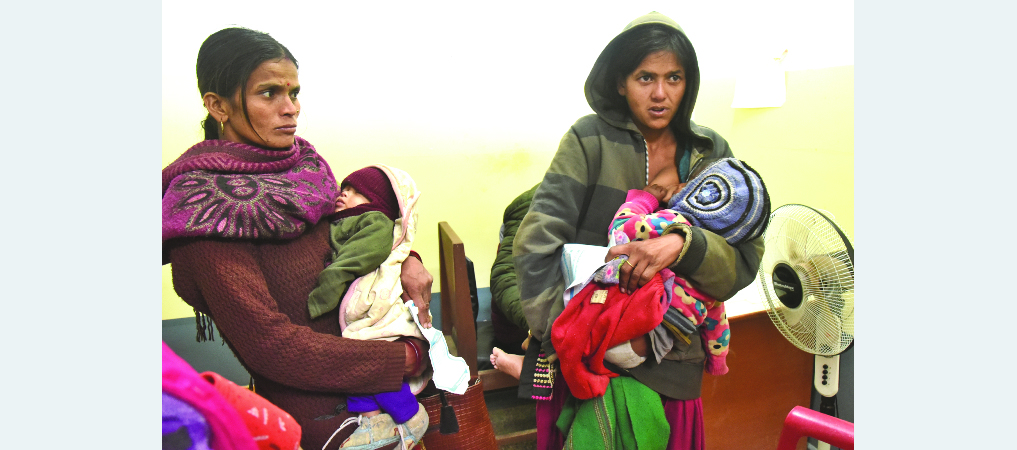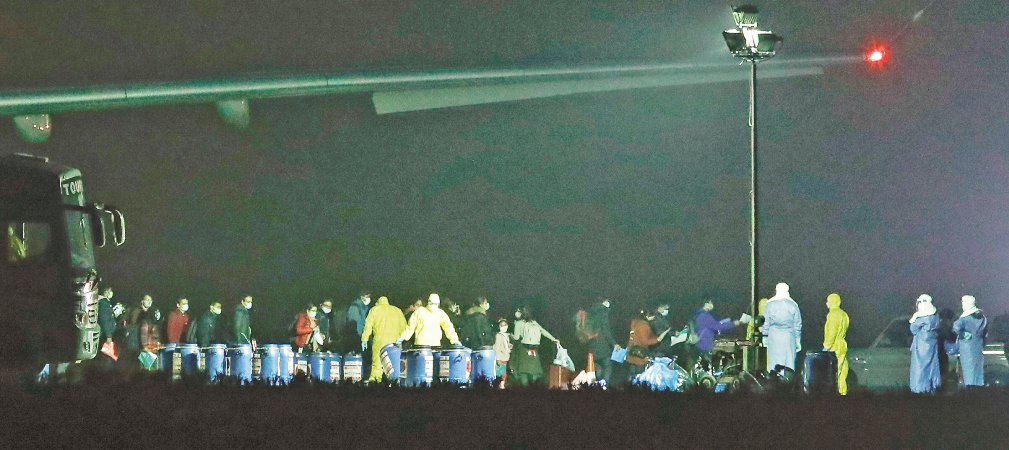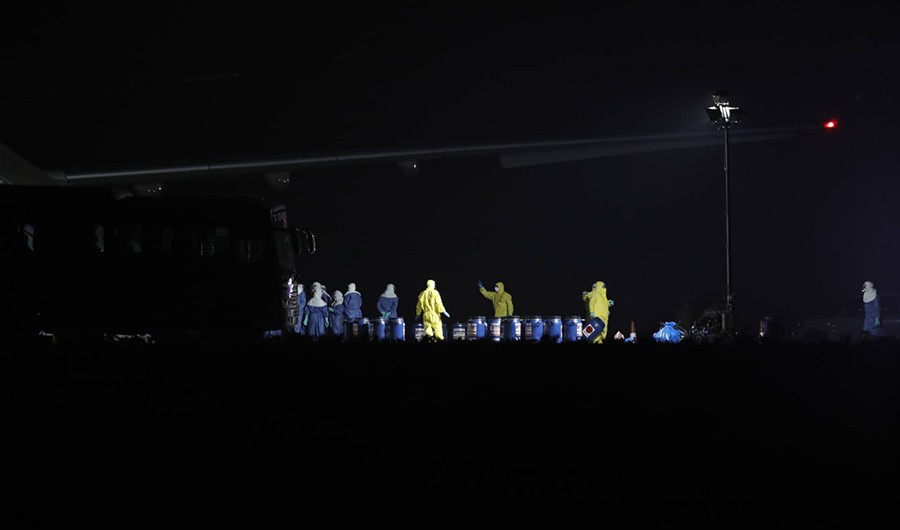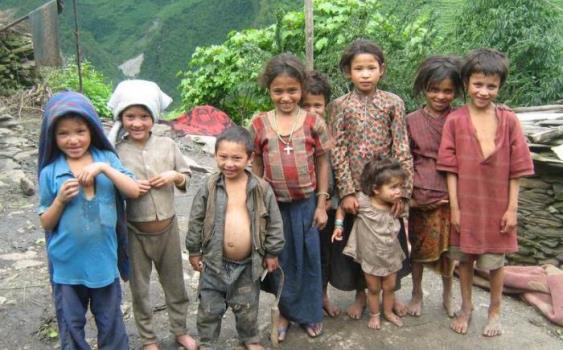Directive issued to regulate labs

By Ajita Rijal
Kathmandu, Apr. 28: With a motive to maintain and regulate the minimum standards of laboratories testing COVID-19, the Ministry of Health and Population (MoHP) has issued 'Interim Guidelines for the Establishment and Operationalisation of the Molecular Laboratories for COVID-19'.
Speaking at the press briefing on Monday, Dr Bikash Devkota, spokesperson for MoHP, said that in line with this directive, the private laboratories could also conduct COVID-19 test through PCR technique, meeting the prescribed standards.
However, the private laboratories willing to operate COVID-19 testing services should take separate permission from the ministry, added Dr Devkota.
Meanwhile, State 1 government has established 100-bed COVID-19 special hospital at BP Koirala Institute of Health Sciences (BPKIHS).
Likewise, COVID-19 test through PCR technique has also been introduced in Rapti Academy of Health Sciences.
With this, the number of laboratories conducting sample test for COVID-19 through PCR method has reached 16.
The ministry informed that 53,534 lab tests, including 10,471 Polymerase Chain Reaction (PCR) tests and 43,063 Rapid Diagnostic Tests have been done until now.
Dr Devkota said, “We have conducted 53,534 tests until now and 2,184 tests were performed in the last 24 hours."
MoHP informed that 43,063 RDT tests have been conducted across the country till date. Similarly, 106 COVID-19 patients and potentially infected people have been kept in isolation throughout the nation. Among these, eight people are receiving treatment within the Kathmandu Valley while 98 are in isolation wards outside the valley.
20,195 in quarantine
The MoHP further informed that 20,195 people across the nation are currently under quarantine. Accordingly, 1,956 are under quarantine in State 1; 1499 are in State 2 and 230 in Bagmati State. Likewise, 554 are in quarantine in Gandaki State, 3,125 in Karnali State, 11,202 in State 5 and 1,639 in Sudurpaschim State.
Dr Devkota informed that eight people have been identified to be in the red zone in the self evaluation done through mobile app. With this, the total number of people in red zone has reached 304.
Epidemiology and Disease Control Division (EDCD) and various district-based health authorities have been following up with the people in red zone, he added.
Lockdown modality to depend on status of COVID-19
Stating that the lockdown was the most effective medium worldwide to check the spread of virus, Dr Devkota said that the tenure of ongoing nationwide lockdown would be determined by various factors.
Firstly, increase in the number of COVID-19 patients in upcoming days would be one of the significant factors in determining the extension or lifting of the lockdown, he said.
Dr Devkota said that testing of COVID-19 also affects the fate of lockdown in the days to come. "We had to send the sample abroad for first COVID-19 test. Now, we have become able to conduct PCR tests in 16 different places within the country."
The government has been striving to expand the scope of COVID-19 test.
Thirdly, the threat of spread of virus also affects the future contingencies of lockdown. Currently, most of the cases are in sporadic stage, i.e., first stage of COVID-19 and only few cases have reached the second stage.
“If we become able to limit the COVID-19 cases in the second stage, we
can minimise the spread of COVID-19 in Nepal,” Dr Devkota added. He also highlighted the citizens' duty in full compliance of lockdown and quarantine to check the virus spread.
Further, improvement in capabilities of health organisations and health workers would assist in lifting the lockdown, he added.
"In this regard, we have been providing various training to health workers and have issued directives to establish COVID-19 special hospitals, classify other hospitals along with improvement of infrastructures of health institutions, " he added.
Dr Devkota said that efforts were being made by the ministry to enable health organisations in all local levels to provide treatment for COVID-19 patients.
He said that the fate of lockdown was contingent on the status of COVID-19 threat in Nepal in the upcoming days and the preparations for combating the spread.
Recent News

Do not make expressions casting dout on election: EC
14 Apr, 2022
CM Bhatta says may New Year 2079 BS inspire positive thinking
14 Apr, 2022
Three new cases, 44 recoveries in 24 hours
14 Apr, 2022
689 climbers of 84 teams so far acquire permits for climbing various peaks this spring season
14 Apr, 2022
How the rising cost of living crisis is impacting Nepal
14 Apr, 2022
US military confirms an interstellar meteor collided with Earth
14 Apr, 2022
Valneva Covid vaccine approved for use in UK
14 Apr, 2022
Chair Prachanda highlights need of unity among Maoist, Communist forces
14 Apr, 2022
Ranbir Kapoor and Alia Bhatt: Bollywood toasts star couple on wedding
14 Apr, 2022
President Bhandari confers decorations (Photo Feature)
14 Apr, 2022



